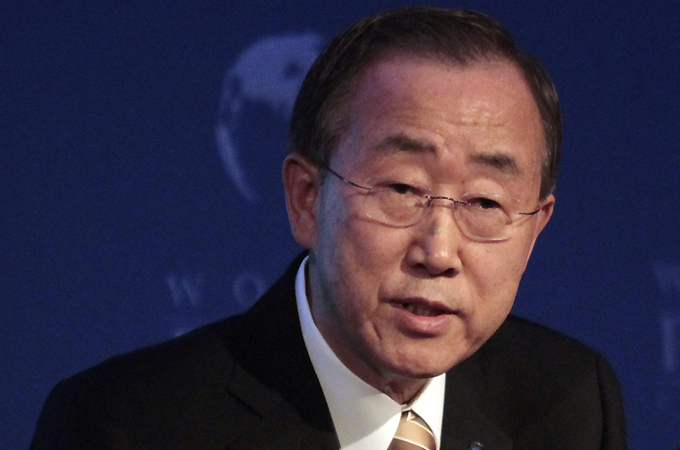Cables: US diplomats ‘spied’ on UN
Leaked diplomatic files reveal details of secret programme of intelligence gathering by US diplomats around the world.

 |
| The US ordered diplomats to gather intelligence on Ban Ki Moon, the UN secretary-general [Reuters] |
US diplomats were ordered to gather intelligence on senior foreign figures, including UN officials, a huge cache of leaked diplomatic cables have revealed.
The revelations came on Sunday, as details of thousands of classified state department files were posted on news websites around the world.
The cables show that in recent years officials at the US state department were ordered to gather detailed information, including credit card details and frequent-flier numbers of senior international figures for the US government’s human intelligence programme.
The UN appears to have been a particular target of the secret programme, with diplomats directed to gather a range of information about the organisation and its staff.
“The intelligence community relies on state reporting officers for much of the biographical information collected worldwide,” the cable says. “Informal biographic reporting via email and other means is vital to the community’s collection efforts.”
Biometric information
The directive, which came from Condoleeza Rice, the then US secretary of state, was circulated to US missions at the UN, and to 33 embassies and consulates around the world.
A separate directive on the same issue, issued by Hillary Clinton, Rice’s successor, in 2009, appears to blur the traditional line between espionage and diplomacy.
The order calls for biometric information of important UN officials and intelligence on Ban Ki Moon, the UN secretary-general, to be collected by embassy staff.
The order asks for information on the “personalities, biographic and biometric information, roles, effectiveness, management styles, and influence of key UN officials, to include under secretaries, heads of specialised agencies and their chief advisers, top SYG [Secretary General] aides, heads of peace operations and political field missions, including force commanders”.
The cables reveal that Washington was also interested in gathering details of any relationship between UN field offices and terrorist groups, specifically asking for “evidence of relationship or funding between UN personnel and/or missions and terrorist organisations”.
The orders also appeared to instruct US officials to collect information about private communications technology used at the UN, asking for “information systems, networks, and technologies used by top officials and their support staffs.”
The information asked for includes “private VIP networks used for official communications, to include upgrades, security measures, passwords, [and] personal encryption keys” of top UN officials, as well as information on “key personnel and functions of UN entity that maintains UN communications and computer networks.”
‘Just diplomats’
PJ Crowley, the US state department spokesman, played down the spying allegations.
“Our diplomats are just that, diplomats,” he said.
“They collect information that shapes our policies and actions. This is what diplomats, from our country and other countries, have done for hundreds of years.”
The documents, details of which have been published in the New York Times, The Guardian and European publications who were been given prior access to the files, provide a rare unvarnished insight into inside workings of the US foreign service.
The US government has condenmed the leak, describing the publication of the files as “reckless and dangerous.”